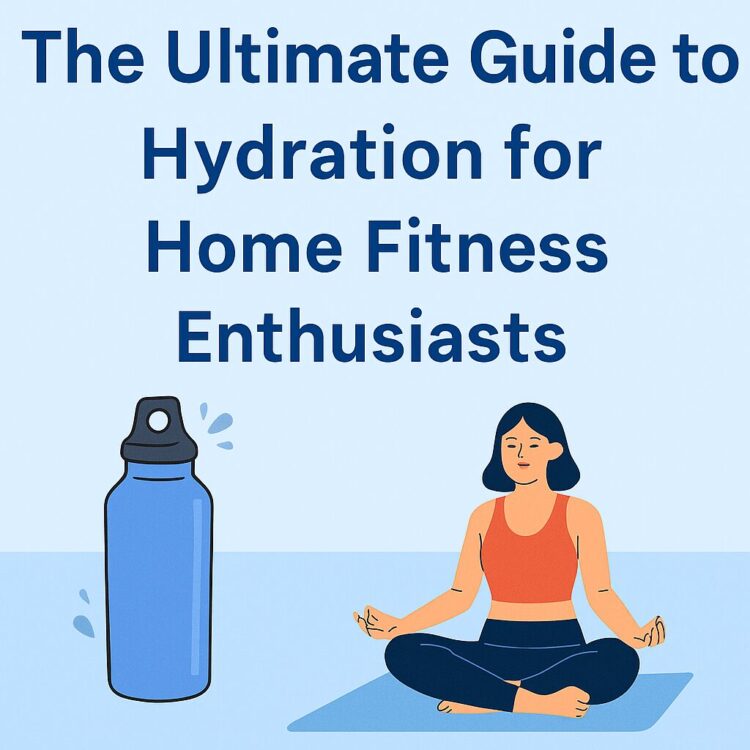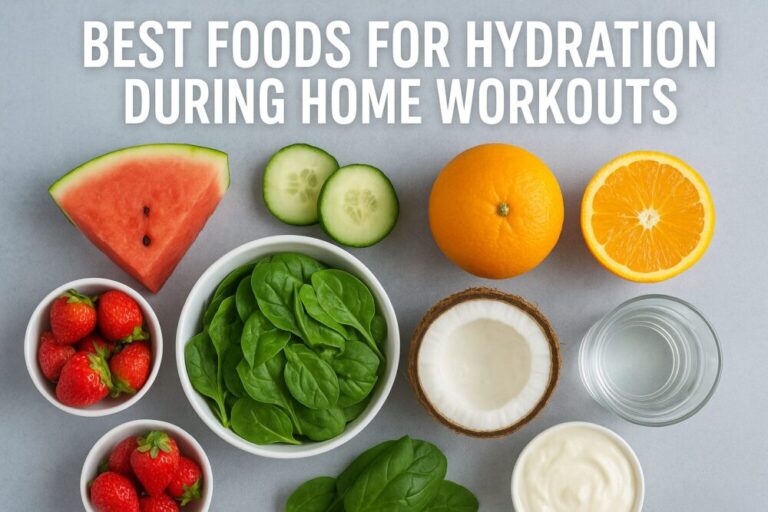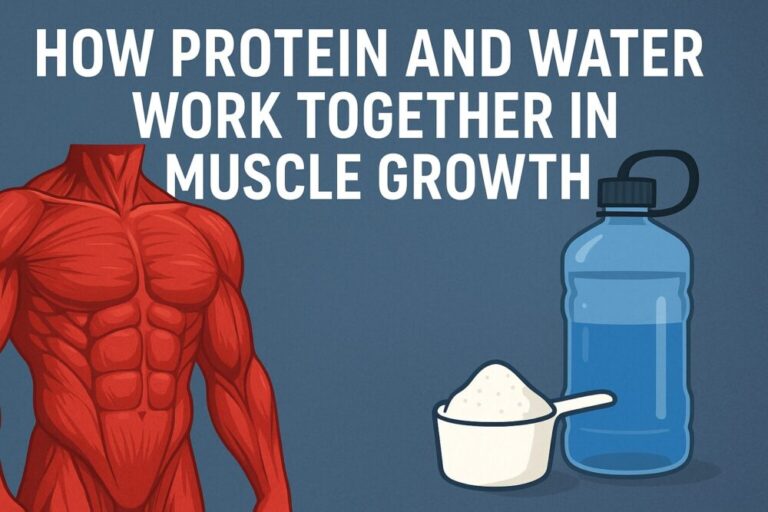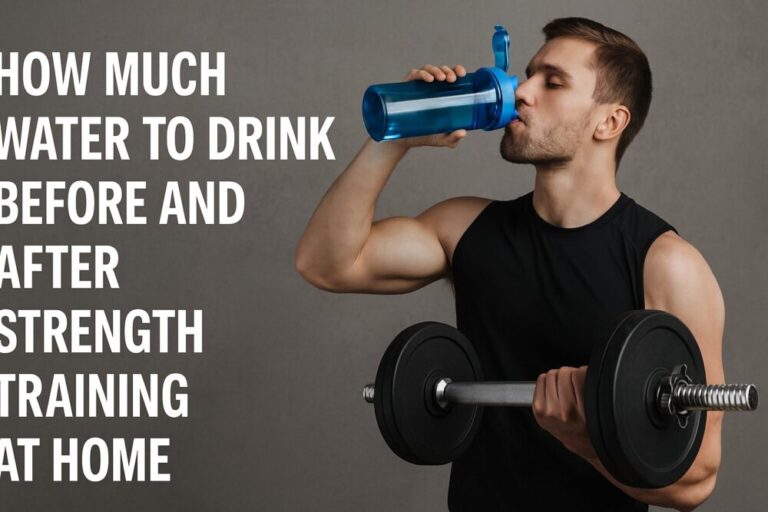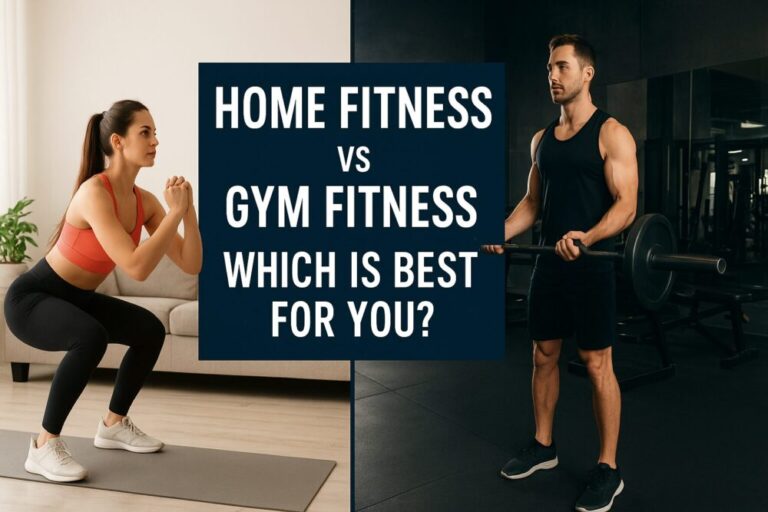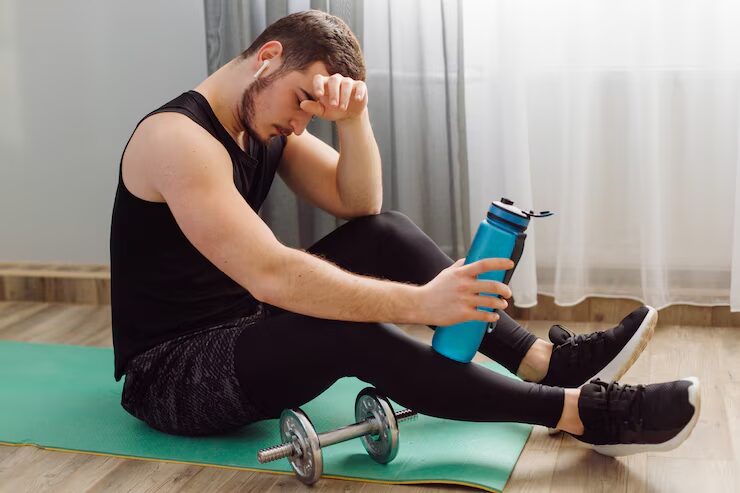Hydration for Home Fitness isn’t just about drinking water, it’s the key to unlock your full potential in every workout. Did you know that even mild dehydration can reduce your performance by up to 30%? Staying hydrated not only improves your endurance but also supports muscle recovery and regulates body temperature during workouts.
According to studies, being well-hydrated can enhance your strength and focus, helping you achieve your fitness goals faster and more efficiently. But how much water do you actually need to stay at your best? It can be tricky to figure out, but don’t worry, we’ve got you covered. Use our handy free Water Intake Calculator to find your perfect hydration level, and keep pushing those limits! Your body will thank you.
In this guide, you’ll get everything you need to know about Hydration and its deep relation with fitness:
- Why Hydration for Home Fitness Matters
- Signs You’re Not Drinking Enough Water
- How Much Water Do You Actually Need?
- Hydration Before, During & After Workouts
- What About Electrolytes?
- Water Intake and Weight Loss
- Water-Rich Foods to Support Hydration
- Gender and Lifestyle Differences in Hydration Needs
- Final Tips to Stay Hydrated at Home
- Conclusion
- FAQ
Why Hydration for Home Fitness Matters
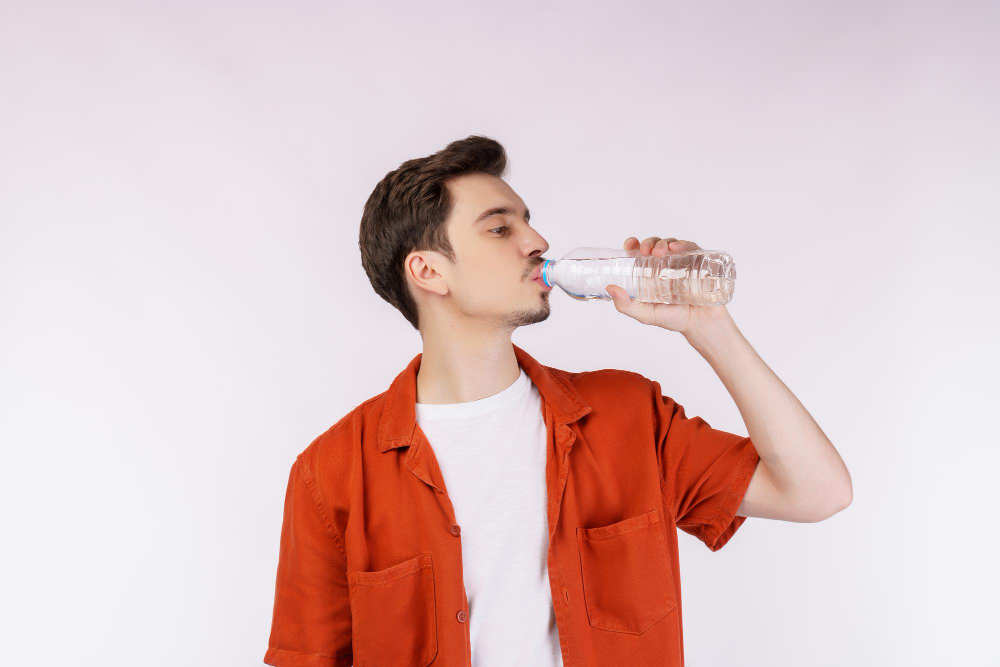
Hydration Supports Energy and Endurance
Even mild dehydration, as little as 1–2% of body weight lost in fluids, can negatively impact endurance, concentration, and energy levels during exercise. According to a 2018 review in Nutrients, fluid loss from sweating leads to impaired thermoregulation, increased fatigue, and reduced exercise performance.
Enhances Mental Focus and Coordination
Home workouts often rely on following guided video routines or app-based cues. Dehydration can impair short-term memory, attention, and coordination, all essential for maintaining form and staying injury-free. A study in The American Journal of Clinical Nutrition showed that even 1.6% dehydration significantly affected cognitive performance in women. (Source)
Water Aids Muscle Recovery and Reduces Cramping
Hydration is crucial for transporting nutrients to your muscles and removing metabolic waste. Without enough water, your muscles struggle to repair themselves efficiently. Research published in Journal of Athletic Training found that electrolyte and water imbalances are a significant factor in exercise-associated muscle cramps. (Source)
Supports Metabolism and Fat Oxidation
Studies also show a clear link between water intake and fat metabolism. A 2016 study in Frontiers in Nutrition found that increased water intake can promote lipolysis (the breakdown of fat) especially during periods of physical activity. In fact, dehydration can even slow down fat loss by reducing metabolic efficiency and workout performance, here’s how it happens. (Source)
Bottom line? Water directly affects your strength, stamina, and results. If you’re skipping hydration, you’re selling your fitness short.
Signs You’re Not Drinking Enough Water
Your body is great at sending signals when it’s low on fluids, especially during physical activity. But many fitness enthusiasts mistake these signs for fatigue, lack of motivation, or even hunger. Recognizing early symptoms of dehydration can help you adjust your water intake before performance and recovery take a hit.
Below are the top signs you’re not drinking enough water, especially during home workouts:
Common Dehydration Warning Signs (with Data)
| Sign | Description | Research Insight |
|---|---|---|
| Fatigue & Brain Fog | You feel sluggish, have difficulty following routines, or zoning out mid-set. | Dehydration of 1–2% body weight can impair cognitive performance and mood. [Nutrients, 2018] |
| Dark Yellow Urine | A sign your body is retaining water, a late indicator of dehydration. | Light straw color = optimal hydration. [CDC] |
| Muscle Cramps | Sudden cramps during or post-workout, especially in calves or hamstrings. | Water + electrolyte imbalance increases cramp risk. [Journal of Athletic Training] |
| Headaches or Dizziness | Sudden headaches while exercising may stem from decreased blood volume. | Dehydration reduces blood flow and oxygen delivery to the brain. [American Journal of Clinical Nutrition] |
| Unusual Hunger | Dehydration often triggers false hunger cues. | The hypothalamus regulates both hunger and thirst. [Physiology & Behavior, 2008] |
| Overheating | Struggling to cool down, even during moderate exercise. | Less water = poor sweat regulation = rising body temp. [J Appl Physiol, 2007] |
Bonus
Many people don’t even realize they’re mildly dehydrated. Studies show that by the time you feel thirst, your body is already 1–2% dehydrated, enough to impact performance. [Gopinathan et al., 1988]. So be sure to drank water regularly even if your brain didn’t tell you that you are thirsty. Want a deeper dive? Check out our full guide: 7 Signs You’re Not Drinking Enough During Workouts
How Much Water Do You Actually Need?

If you’re asking, “How much water should I drink daily?” you’re not alone. It’s one of the most searched fitness questions online. But the truth is, there’s no one-size-fits-all answer.
Your water needs depend on a unique mix of personal and lifestyle factors that go well beyond the old “8 glasses a day” rule.
Here’s what really affects how much water you need:
Your Body Weight & Composition
Larger bodies require more water to regulate temperature, support circulation, and maintain joint health. Muscle tissue also holds more water than fat, so two people of the same weight may still need different amounts based on their lean mass.
Your Physical Activity Level
Even short workouts at home increase water loss through sweat. High-intensity interval training (HIIT), strength training, and cardio can all dramatically increase your hydration needs, especially if you’re doing them daily.
Temperature and Environment
Working out in a warm or humid room? Your body will sweat more to cool itself, meaning you’ll need more fluids to stay balanced, even if you’re indoors. Add in fans, heaters, or poor ventilation, and your hydration requirements shift again.
Your Diet and Nutrition Habits
Eating high-protein meals, salty snacks, or following a ketogenic or intermittent fasting plan? These increase your need for water to aid digestion and regulate metabolism.
Sodium & Electrolyte Levels
Sweating doesn’t just mean water loss, you lose electrolytes too. Depending on your sweat rate and how long you exercise, you may need more fluids to stay balanced and avoid cramps or fatigue.
Hydrate Smart
Instead of guessing, use our Free Water Intake Calculator to get an exact, personalized recommendation based on your body, activity level, and lifestyle.
👉 Click here to calculate your optimal water intake and hydrate smarter.
Hydration Before, During & After Workouts
Before Your Workout
Effective hydration for home fitness begins well before your workout even starts. Drinking 300–500 ml of water about 30 to 60 minutes beforehand helps prepare your body by promoting better blood flow and lubricating your joints. If you start a workout, even slightly dehydrated can result in faster fatigue, poor concentration, and reduced endurance, especially during demanding routines like HIIT or full-body strength sessions.
During Your Workout
it’s easy to underestimate how much fluid you’re losing, especially without the obvious signs like gym sweat or sauna-like heat. But don’t let the comfort of your environment fool you. Hydration for home fitness during your workout is just as important as your form or technique.
To take control, try sipping 100–150 ml of water every 15–20 minutes. This is particularly important for sweat-heavy home workouts like bodyweight cardio, high-rep strength circuits, or any session where your heart rate stays elevated. Also, don’t forget to have your water bottle within arm’s reach this should be a non-negotiable part of your setup.
After Your Workout
Once your workout is over, your focus should shift to post-workout hydration for home fitness. Aim to drink at least 500 ml of water, especially if your session was longer than 45 minutes or involved high-intensity movement. For even better recovery, pair your fluids with hydrating foods like watermelon, cucumber, or a smoothie packed with electrolytes.
Proper rehydration helps flush out toxins, reduce muscle soreness, and prep your body for your next training day. Neglecting this step can slow down your progress and increase the risk of fatigue or injury over time.
Optimize Your Routine
Mastering hydration for home fitness means building small, consistent habits into your daily routine. Looking for more detailed strategies tailored to high-intensity training at home? Check out in-depth guide on HIIT hydration tips to stay energized and cool throughout even the most demanding sessions.
What About Electrolytes?
If you’re doing long, intense workouts or training in a hot environment, electrolytes like sodium, potassium, magnesium, and calcium become critical. These minerals help your body maintain fluid balance, support muscle function, and prevent cramps. Without enough of them, even drinking lots of water can leave you feeling depleted.
When Do You Need Electrolytes?
- If your workouts last over 60 minutes
- You’re doing HIIT, circuit training, or strength training
- You sweat heavily or train in hot, humid spaces
- You feel muscle cramps, dizziness, or post-workout fatigue
Simple Options to Replenish:
- A pinch of sea salt in your post-workout water
- Coconut water or diluted fruit juice
- DIY electrolyte drink (water + lemon + salt + honey)
- Low-sugar store-bought electrolyte tabs or powders
Side-by-Side Comparison
| Water Only | Water + Electrolytes |
|---|---|
| Great for short workouts | Better for intense, sweaty sessions |
| Maintains hydration baseline | Replenishes minerals lost in sweat |
| Inexpensive, accessible | Improves recovery and performance |
Need more details, check out our article: Electrolytes vs. Water: What’s Best During Home HIIT Workouts?
Water Intake and Weight Loss
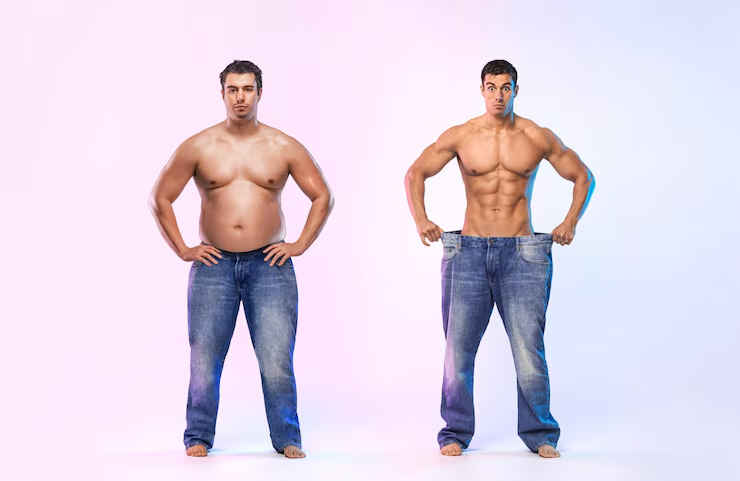
When people think of fat loss, the conversation almost always centers around calories, workouts, and macros. While those are important, there’s a crucial element that often gets overlooked: hydration.
How Water Helps Burn Fat
To begin with, water plays a key role in a process called lipolysis—the breakdown of fat cells. According to research published in Frontiers in Nutrition, staying hydrated directly supports fat oxidation, especially when you’re active. In contrast, when you’re dehydrated, your body slows down this fat-burning process, making your workouts less effective. [Source]
In addition, hydration can actually give your metabolism a noticeable boost. A study from The Journal of Clinical Endocrinology & Metabolism revealed that drinking just 500 ml of water increased participants’ metabolic rate by an impressive 30% within ten minutes, and the effect lasted for over an hour. [Source]
Furthermore, water helps curb false hunger cues that often lead to mindless snacking. A 2010 study published in Obesity found that drinking 500 ml of water before meals led to 44% more weight loss in overweight adults over a 12-week period. [Source] This simple habit can significantly enhance your fat loss efforts, especially when combined with consistent home workouts and mindful eating.Want more check out : water and weight loss-what experts recomends
Why It Matters for At-Home Workouts
Ultimately, hydration for home fitness is one of the simplest yet most effective tools in your fat loss arsenal. Whether you’re doing a quick HIIT circuit in your living room or a full-body strength session in your garage, staying well-hydrated can elevate your performance and accelerate your progress.
Water-Rich Foods to Support Hydration

While drinking water is the primary way to stay hydrated, it’s not the only source your body uses. In fact, about 20–30% of your daily need of water can come from the foods you eat. That’s why, especially for those practicing home fitness, adding water-rich foods to your meals and snacks can make a noticeable difference in your energy, recovery, and overall performance.
Why Water-Rich Foods Matter
To begin with, water-rich foods hydrate your body more slowly and steadily than liquids alone. Because these foods also contain fiber, vitamins, and minerals, they offer dual benefits: they nourish your cells while also enhancing fluid retention.
This is especially helpful after a workout, when your body is trying to restore balance and reduce inflammation. Adding water-rich foods to your post-workout meal can accelerate recovery and reduce cravings.
Moreover, these foods are typically low in calories and high in volume, making them ideal for those pursuing weight loss goals. When combined with proper water intake, they help you feel full longer, keep digestion smooth, and reduce bloating, critical for anyone committed to hydration for home fitness.
Below you’ll find a table with foods you need or Read the full guide here: Best Foods to Eat for Better Hydration
Top Water-Rich Foods to Add to Your Fitness Routine
| Food | Water Content | Added Benefit |
|---|---|---|
| Cucumber 🥒 | 96% | Great for post-workout salads |
| Watermelon 🍉 | 92% | Contains antioxidants for recovery |
| Strawberries 🍓 | 91% | Sweet + hydrating snack option |
| Lettuce 🥬 | 95% | Easy to add to any meal |
| Zucchini 🥒 | 94% | Great grilled or raw |
| Celery 🌿 | 95% | Natural sodium = bonus for electrolyte balance |
| Oranges 🍊 | 87% | Rich in Vitamin C and fluids |
| Greek Yogurt 🥣 | ~85% | Protein + water combo = recovery booster |
Gender and Lifestyle Differences in Hydration Needs
When it comes to hydration for home fitness, there’s no one-size-fits-all solution. Your water needs can vary significantly based on gender, body composition, and workout style.
For example, men generally have more lean muscle mass, which means they often require more water to support cellular function and recovery. Meanwhile, women may experience fluctuations in hydration needs due to hormonal changes throughout the menstrual cycle, especially during high-intensity or endurance training at home.
Lifestyle also plays a key role. A busy mom doing short yoga sessions will have very different hydration demands compared to someone doing daily HIIT in a hot apartment. Even factors like age, sweating rate, or whether you train in the morning or evening can affect how much fluid your body loses and how quickly it needs to be replaced.Want a deep-dive visit Hydration Tips for Busy Moms Doing Home Workouts And Hydration for Women Doing Yoga or Pilates.
That’s why hydration for home fitness should be personalized. Using a tool like our Water Intake Calculator is a smart way to make sure you’re not under- or over-hydrating based on your routine and individual needs. Not sure? read why should every athlete use a wtaer intake caculator.
Final Tips to Stay Hydrated at Home
Staying on top of your hydration for home fitness doesn’t have to be complicated. With a few small habits, you can easily make it part of your daily routine, and start feeling the benefits in your workouts, energy, and recovery. Here are a afew tips that we choose for you to stay on the road:
- Start your day with water: Drink a glass first thing in the morning to kickstart your system.
- Keep a bottle nearby: Place a reusable water bottle where you work out or sit most of the day.
- Infuse your water: Add lemon, mint, or cucumber to make it more enjoyable and refreshing.
- Set reminders: Use your phone or fitness app to send gentle hydration prompts.
- Drink before, during, and after workouts: Don’t wait until you’re thirsty stay ahead of dehydration.
- Summer Bonus: How to Stay Hydrated During Summer Home Workouts
Even if your workouts are short, staying hydrated can improve how you feel, how you perform, and how quickly you recover. And remember your water needs are unique. Don’t guess.
Conclusion
If you’ve been focusing on workouts, macros, and rest but still not seeing the results you want, hydration might be the missing piece. From boosting energy and focus to improve fat loss and recovery, staying hydrated is one of the simplest yet most powerful habits you can build into your home fitness routine.
The key is not just drinking more water, but drinking the right amount for your body, workout type, and lifestyle. That’s exactly why we created the Water Intake Calculator to help you stop guessing and start fueling your body properly.
Ready to unlock better results with smarter hydration?
Click here to calculate your personalized daily water needs in under 60 seconds, completely free.
FAQ
How much water should I drink if I work out at home?
The general rule is to drink 30–40 ml per kg of body weight per day. However, if you’re exercising, sweating, or live in a warm climate, your needs increase. Use our Water Intake Calculator to get a personalized recommendation.
Can I drink too much water during my workouts?
Yes. Overhydrating in a short period, especially without replenishing electrolytes can dilute your sodium levels, a condition called hyponatremia. Sip gradually and listen to your body during home workouts.
Is plain water enough, or do I need sports drinks?
For most short or moderate workouts under 60 minutes, plain water is enough. But for longer, high-intensity sessions or if you sweat heavily, you may benefit from adding electrolytes.
Does drinking water really help with weight loss?
Yes. Water boosts metabolism, supports fat oxidation, and helps control appetite. Studies show that drinking water before meals can enhance weight loss results.
What’s the best time to hydrate around workouts?
Drink 300–500 ml of water 30–60 minutes before exercise, sip during your session, and rehydrate with 500–750 ml afterward. Proper hydration timing supports performance and recovery.

